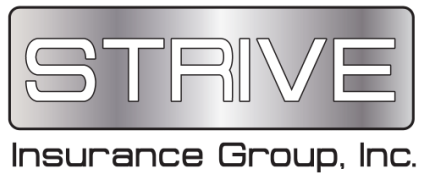|
As a property manager, you work hard to maintain properties and ensure tenants are satisfied. However, unexpected events can occur, and insurance claims may be necessary. Here are three examples of property manager insurance claims and how they can help:
Example 1: Liability Claim - Slip and Fall
Need help navigating property manager insurance claims? Contact me to discuss your unique needs and ensure you're adequately covered. Business interruption coverage is crucial to commercial property insurance, providing financial support when unexpected events disrupt business operations. This coverage is especially important for property managers and medical office buildings, as it helps ensure continuity of operations and maintenance of revenue streams. In this article, we'll delve into the details of business interruption coverage, its benefits, and how it applies to these buildings.
What is Business Interruption Coverage? Business interruption coverage, or business income coverage, is an extension of commercial property insurance. It reimburses lost business income and expenses when a covered event, such as a fire, natural disaster, or equipment failure, forces a business to suspend operations. Key Benefits for Property Managers and Medical Office Buildings
In today's litigious society, where multimillion-dollar lawsuits can arise from simple accidents or unforeseen events, businesses must ensure they have adequate protection beyond standard liability policies. This is where commercial umbrella insurance steps in, offering an additional layer of security that can be crucial for a business’s survival. Here’s why every business should consider adding commercial umbrella insurance to their risk management strategy:
1. Extended Coverage Limits What It Offers: Commercial umbrella insurance provides additional coverage when the limits of your underlying liability policies (like general liability, auto liability, and employers' liability) are exhausted. For example, if a lawsuit costs $2 million to settle and your general liability covers only $1.5 million, your umbrella policy can cover the additional $500,000, thus protecting your business assets from being used to cover the shortfall. Why It’s Important: Businesses often face risks that can result in claims exceeding standard policy limits. Umbrella insurance acts as a safety net, ensuring that a business isn't crippled financially by a single incident. This is especially important in high-risk industries or those prone to large liability claims. 2. Broader Coverage What It Offers: Besides providing higher limits, commercial umbrella insurance sometimes covers claims that are not included in primary liability policies. This can include certain legal fees, contractual liabilities, and liabilities over business practices that may not be typically covered under standard policies. Why It’s Important: The broad nature of coverage under umbrella insurance means that businesses can be protected against unforeseen gaps in their primary insurance policies. This comprehensive coverage is vital for peace of mind and continuous business operations, particularly in dynamic environments where unexpected legal challenges can arise. 3. Cost-Effectiveness What It Offers: Commercial umbrella insurance is generally cost-effective, especially compared to the increase in limits it provides. Premiums are relatively low because the umbrella policy only kicks in after the primary insurance limits are reached, which makes it a less frequently used policy. Why It’s Important: For a relatively small additional cost, businesses can significantly increase their liability coverage. This makes commercial umbrella insurance an efficient way to boost total coverage without proportionately increasing insurance costs, providing substantial financial protection relative to the investment. 4. Reputation Protection What It Offers: By ensuring that claims can be settled fully and promptly, umbrella insurance helps in protecting a business’s reputation. Handling claims efficiently prevents negative publicity and maintains customer trust. Why It’s Important: A business’s reputation is one of its most valuable assets. In the event of a large claim, having the financial backing to resolve issues swiftly and fully can help avert potential reputation damage, which can be costly and difficult to recover from. 5. Peace of Mind What It Offers: With umbrella insurance, business owners can have peace of mind knowing they are protected against catastrophic losses that could potentially bankrupt their operations. Why It’s Important: Running a business involves managing daily risks. With the protection of an umbrella policy, business owners can focus more on growth and less on the potential for devastating financial implications from lawsuits. Commercial umbrella insurance is an essential component of a comprehensive business insurance strategy. It not only extends the limits of existing liability coverages but also ensures broader protection, making it an indispensable safeguard for businesses aiming to secure their future against the uncertainties of high-cost liabilities. 3/20/2024 Why Medical Offices Need InsuranceNavigating the Essentials for Protection In the healthcare sector, medical offices serve as critical touchpoints for patient care, providing a wide array of services from routine check-ups to specialized treatments. Given the sensitive nature of healthcare services and the potential for financial, legal, and reputational risks, it's imperative for medical offices to have comprehensive insurance coverage. The Necessity of Insurance for Medical Offices Medical offices are exposed to a variety of risks that can arise from their operations, including professional errors, accidents on the premises, data breaches, and more. Insurance plays a vital role in managing these risks by providing financial protection and support in case of legal actions or claims against the office. Without adequate insurance, a single lawsuit or unforeseen event could potentially devastate the financial stability and operational continuity of a medical practice. Critical Types of Insurance for Medical Offices 1. Professional Liability Insurance (Malpractice Insurance) Professional liability insurance, commonly referred to as malpractice insurance, is paramount for any medical office. This coverage protects healthcare providers against claims of negligence or harm resulting from their professional services. Given the complexity of medical treatments and the potential for adverse outcomes, malpractice insurance ensures that medical practitioners can defend against claims and pay out settlements or judgments without jeopardizing their financial well-being. 2. General Liability Insurance General liability insurance covers non-professional operational risks, such as bodily injury or property damage that could occur within the medical office premises. For instance, if a patient slips and falls in the waiting room, this insurance can cover medical costs for the injured party and legal fees if the practice is sued. It's a fundamental coverage that addresses common accidents or injuries that can happen in any business setting. 3. Cyber Liability Insurance With the increasing reliance on electronic medical records and digital healthcare platforms, medical offices are prime targets for cyber attacks. Cyber liability insurance provides protection against risks related to data breaches, loss of patient information, and cyber extortion. This type of insurance can cover notification costs, legal fees, and fines associated with data protection regulations, as well as recovery and repair of compromised systems. 4. Property Insurance Property insurance is crucial for protecting the physical assets of a medical office, including medical equipment, office furniture, computers, and the building itself if owned by the practice. This coverage helps repair or replace property damaged by fire, theft, vandalism, or natural disasters, ensuring the office can recover and resume operations swiftly after an unexpected event. 6. Business Interruption Insurance Business interruption insurance compensates for lost income and covers operating expenses when a medical office is forced to close temporarily due to a covered event, such as a natural disaster or major equipment failure. This type of insurance is essential for maintaining financial stability during periods when the office cannot operate as usual. Insurance is not just a regulatory requirement for medical offices; it's a critical component of risk management and financial planning that safeguards the practice's future. By securing comprehensive coverage across these key areas, medical offices can protect themselves against a wide range of risks, from professional liability to property damage and beyond. Investing in the right insurance policies ensures that medical practitioners can continue to provide essential healthcare services without the looming threat of financial ruin due to unforeseen events or legal challenges. As a property manager, you’re tasked with overseeing residential, commercial, or industrial real estate properties. While this role comes with many responsibilities, ensuring adequate insurance coverage is paramount to protect your business, your clients' assets, and yourself from unforeseen events. Here are three essential types of insurance coverage every property manager should consider:
1. General Liability Insurance Protection Against Common Risks What It Covers: General liability insurance is the cornerstone of a property manager's insurance portfolio. It provides protection against common risks such as injuries or property damage to third parties occurring on the property. Real-Life Scenario: Imagine a visitor slipping on an icy walkway at one of your managed properties. This insurance can cover the medical bills and legal fees if you're sued. Why It's Essential: This coverage is crucial because it addresses the most common risks associated with property management. 2. Professional Liability Insurance (Errors & Omissions) Safeguarding Your Professional Services What It Covers: Also known as Errors and Omissions (E&O) insurance, this policy protects against claims of negligence or inadequate work. Real-Life Scenario: If a tenant sues you for failing to fix a maintenance issue promptly, E&O insurance can help cover your defense costs and any resulting settlements. Why It's Essential: Property managers make decisions daily that could lead to lawsuits. This insurance provides peace of mind, knowing that your professional decisions are protected. 3. Property Insurance Direct Protection for Your Business Assets What It Covers: This insurance covers the physical assets of your business, including your office space, computers, and furniture, against risks like fire, theft, or natural disasters. Real-Life Scenario: If a fire damages your office, property insurance can help cover the repair costs and replacement of damaged equipment. Why It's Essential: As a property manager, your business relies on various physical assets. Protecting these ensures minimal interruption in your business operations following a loss. Investing in the right insurance coverages is crucial for property managers. It not only safeguards your business but also builds trust with your clients, showing them that their properties are in responsible hands. Always consult with an insurance professional to tailor your coverage to your specific needs and risks. Remember, being proactive about insurance can save you from significant financial and reputational damage in the long run. This blog provides a basic overview, but it's always recommended to consult with insurance experts for more detailed advice tailored to specific situations. Medical offices play a critical role in providing essential healthcare services to communities. In the pursuit of delivering quality patient care, medical practitioners and staff face various challenges and risks that can impact their operations and financial stability. Commercial insurance for medical offices is a vital component of managing these risks and ensuring the smooth functioning of the healthcare facility. In this article, we will explore the three key factors that medical office administrators should consider when selecting commercial insurance coverage.
1. Comprehensive Liability Coverage Liability is a significant concern for medical offices due to the inherent risks associated with healthcare services. Comprehensive liability coverage should be a top priority for medical office insurance plans. This coverage encompasses both general liability and professional liability (malpractice) insurance. General Liability Insurance: This coverage protects medical offices from claims related to bodily injury, property damage, and other non-medical incidents that can occur on the premises. For instance, if a patient or visitor slips and falls in the waiting room, general liability insurance can cover medical expenses and potential legal costs. Professional Liability Insurance: Also known as malpractice insurance, this coverage is specific to healthcare professionals. It safeguards medical practitioners from claims arising due to errors, omissions, or negligence in providing medical care. Given the potential financial implications of malpractice lawsuits, this coverage is indispensable for medical offices. 2. Property Insurance Medical offices are equipped with valuable medical equipment, technology, and infrastructure. In the event of unexpected events such as fire, theft, vandalism, or natural disasters, property insurance becomes essential to safeguard these assets. Building Coverage: Medical offices should have insurance coverage that protects the physical structure of the facility. This includes coverage for damage to walls, ceilings, floors, and other structural elements resulting from covered perils. Contents Coverage: Medical equipment, furniture, computers, and other valuable items within the facility should be covered under contents insurance. In the event of theft or damage, this coverage ensures that the medical office can replace or repair essential items without significant financial strain. Business Interruption Coverage: If a covered event forces the medical office to suspend operations temporarily, business interruption coverage can provide compensation for lost income and ongoing expenses during the period of closure. This coverage helps medical offices recover more swiftly after an unforeseen disruption. 3. Cyber Liability Insurance In the digital age, medical offices rely heavily on electronic health records (EHR) systems and sensitive patient data storage. This increased reliance on technology exposes medical offices to cyber risks such as data breaches, hacking, and ransomware attacks. Cyber liability insurance is designed to protect against financial losses and legal liabilities resulting from cyber incidents. Data Breach Coverage: If patient data is compromised due to a cyberattack, data breach coverage can help cover the costs of notifying affected individuals, credit monitoring services, legal fees, and regulatory fines. Ransomware Protection: Cyber liability insurance can also provide coverage in the unfortunate event of a ransomware attack. It can cover the costs associated with ransom payment, data recovery, and any necessary system repairs. Legal and Regulatory Support: Cyber liability insurance often includes access to legal and technical experts who can help medical offices navigate the legal and regulatory landscape after a cyber incident. Commercial insurance is an essential safeguard for medical offices to mitigate risks and ensure continuity of operations. Comprehensive liability coverage, property insurance, and cyber liability insurance are three fundamental keys to creating a robust insurance strategy for medical offices. By addressing these key areas, medical office administrators can provide quality care to patients while protecting their practice from potential financial hardships stemming from unforeseen events. Top of Form |
Archives
June 2024
Categories
All
|







 RSS Feed
RSS Feed
7/17/2024
0 Comments